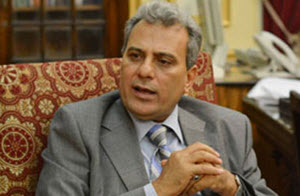
Islam recognizes and protects the freedom of belief and calls for establishing state on a civil basis
Prof. Dr. Gaber Nassar, Cairo University President, said that the outlook of Sharia on the rights of minorities is regarded a part of its outlook on human rights in general. Humans were not to interfere in those rights because they serve as a bestowal of honors upon human. He pointed out that the rights non-Muslims enjoy in the Islamic states are not less than what Muslims themselves enjoy because the guarantees which maintained that for them were not merely legal, but religious also. Islam is proud of neither forcing anybody to embrace it, nor supporting the use of violence or force in spreading its beliefs and principles. Prof. Dr. Gaber Nassar pointed out that Islam calls for charity and performance of good deeds with non-Muslims.
This was delivered in his speech in front of the religious minorities in Islamic countries conference convened at Marrakesh, Morocco, where Egypt was the head of the delegation, headed by His Eminence Dr. Ahmed El-Tayeb, Grand Imam of Al-Azhar of Egypt.
Nassar illustrated in his speech that Islam not only recognizes the human right in holding a belief, but it also protects this right in all forms of protection, so as to protect human dignity and freedom. Therefore, it calls for establishing a state on a civil basis not religious or sectarian basis. Religion and sect are a relation between human and God, whereas the relationship between human and another human is driven from their being two brothers who live in the same land. Therefore, a Muslim has the right to deal with non-Muslims as brothers of land and humanity; consequently, exchanged rights that protect human dignity and freedom are based on this brotherhood.
Nassar reviewed the rights which minorities enjoy in the light of Islam, and which are covered by what is known as citizenship. He illustrated that on the head of these rights there are three types, first of which is religious rights, the second is political rights, and the third is social rights. He said that religious rights mean two things, first of which is the freedom of belief as minorities can obtain their right to keep their belief without being forced to hold another belief. The second thing is the right of practicing religious rituals. As for social rights, equality in civil rights is concerned with the conduct of means of business for all, as well as human dignity right, social security right, and guaranteeing poor, disabled and elderly non-Muslims. Social rights also call for a general principle that includes all the sons of society; Muslims and non-Muslims, the right of every human to get managerial, public affair, and freedom of speech jobs.
Nassar confirmed that Islam recognizes and protects the freedom of speech, and calls for establishing state on a civil basis.
.jpg)
.jpg)
.jpg)
.jpg)
Latest News
Kasr Al Aini lance le programme de médecinefrançaise « KAF » en 2025-2026 : une étapestratégique pour promouvoir le leadership africain et l’ouvertureinternationale.
A momentous occasion unfolded at Cairo University Grand Celebration Hall, where the Egyptian-French Universities Forum was hosted, with French President Emmanuel Macron present.
Cairo University achieves significant leaps in the Times Arab Rankings for 2024, ranking eighth among Arab universities and first among Egyptian universities.
In a meeting of Cairo University s Council, Prof Mohamed Sami Abdel-Sadek has announced the launch of the "Cairo University Artificial Intelligence Strategy", which is aligned with the Sustainable Development Goals and Egypt s Vision 2030.
For the third consecutive time, the international accreditation of the Architecture Engineering and Technology programme at Cairo University s Faculty of Engineering has been renewed for 5 years by UNESCO and the International Union of Architects.
Back